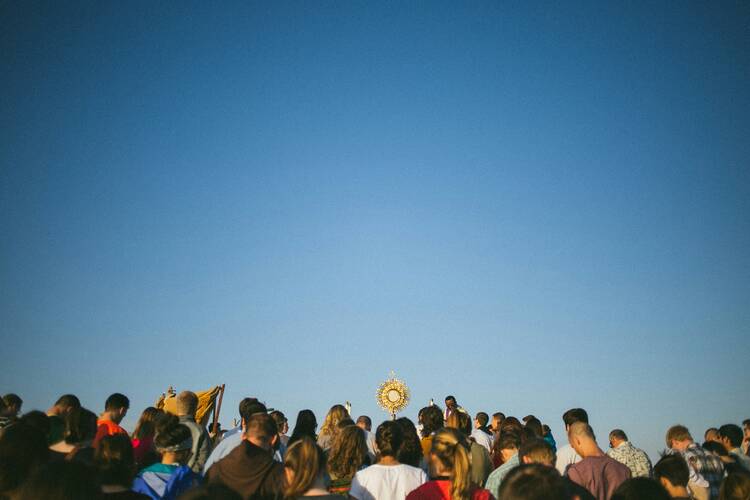A Reflection for the Memorial of St. Benedict, Abbot
Find today’s readings here.
"Behold, I am sending you like sheep in the midst of wolves; so be shrewd as serpents and simple as doves.” (Matthew 10:16)
While I work and minister with the Jesuits at America, much of my education and formation as a lay Catholic comes from the Benedictines of Saint John’s Abbey in Collegeville, Minnesota.
There I learned about St. Benedict, who came of age during the collapse of the Roman Empire, and about his little rule, “for beginners” as he calls it, who seek to live a monastic life growing in virtue together in a community.
I always found it interesting that Benedict insisted on community living. Up to that point, the great spiritual masters of the Christian tradition had mostly pursued the contemplative life solo. Not Benedict. By the 6th century, he had an impulse to go back and rediscover the first church of the Apostles, which was very much community-oriented, including praying regularly together and sharing everything in common (Acts 2).
I find this interesting for two reasons: First, because of what was happening in the world around him. When a society is in crisis, it’s a good idea to find (or create) a small, intentional community for support. To state the obvious, that has proved to be a perennially relevant insight and best practice.
Second, community life is actually quite difficult. On a macro level, facing broader societal upheaval together in a community can be stabilizing. But on a micro level, we’re still dealing with human beings in all of their shortcomings, complexities and contradictions. As if the collapse of the Roman Empire wasn’t enough to deal with!
But the great wisdom of St. Benedict shines through his instinct to hold contradictory things in a creative tension. To Christians today, his rule stressing complete obedience and a rigorous prayer life can feel unrealistic. At the same time, it stresses balance, moderation and forgiveness. In drawing up the rule, he writes in the Prologue, “we hope to set down nothing harsh, nothing burdensome. The good of all concerned, however, may prompt us to a little strictness in order to amend faults and to safeguard love.”
Jesus, looking at the broken world around him, invited his disciples to a similar kind of creative tension. "Behold, I am sending you like sheep in the midst of wolves; so be shrewd as serpents and simple as doves.” In his time, in Benedict’s time, in our time, Christians are called to be sophisticated people: informed, astute, honest, realistic, courageous, humble, meek, compassionate, inclusive. It’s a lot to ask of any one of us, which is why we should learn it together, in community.








